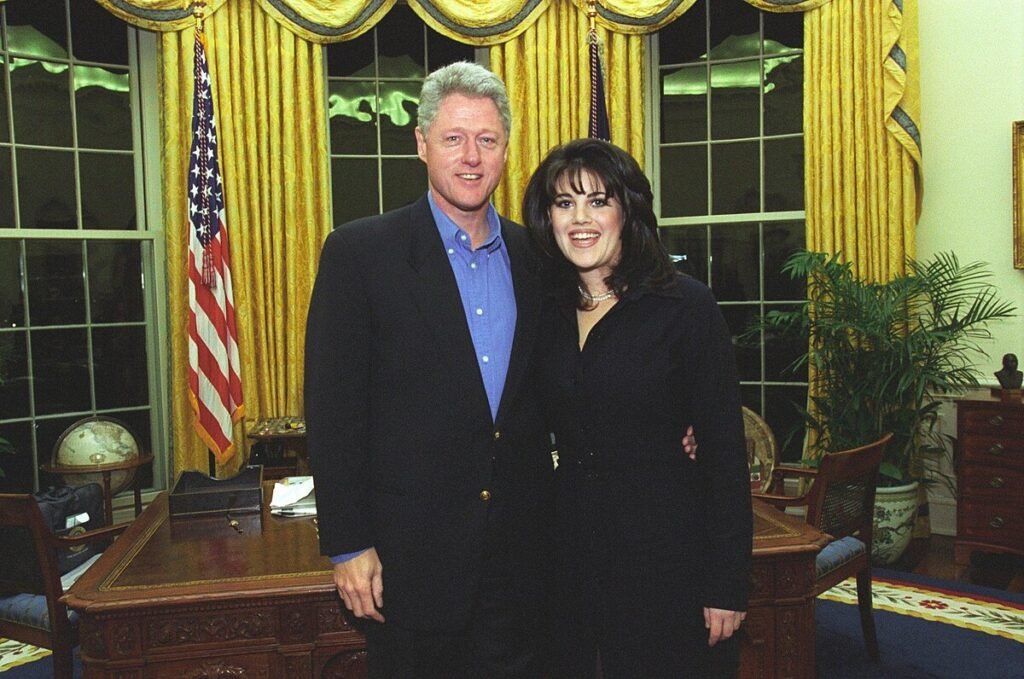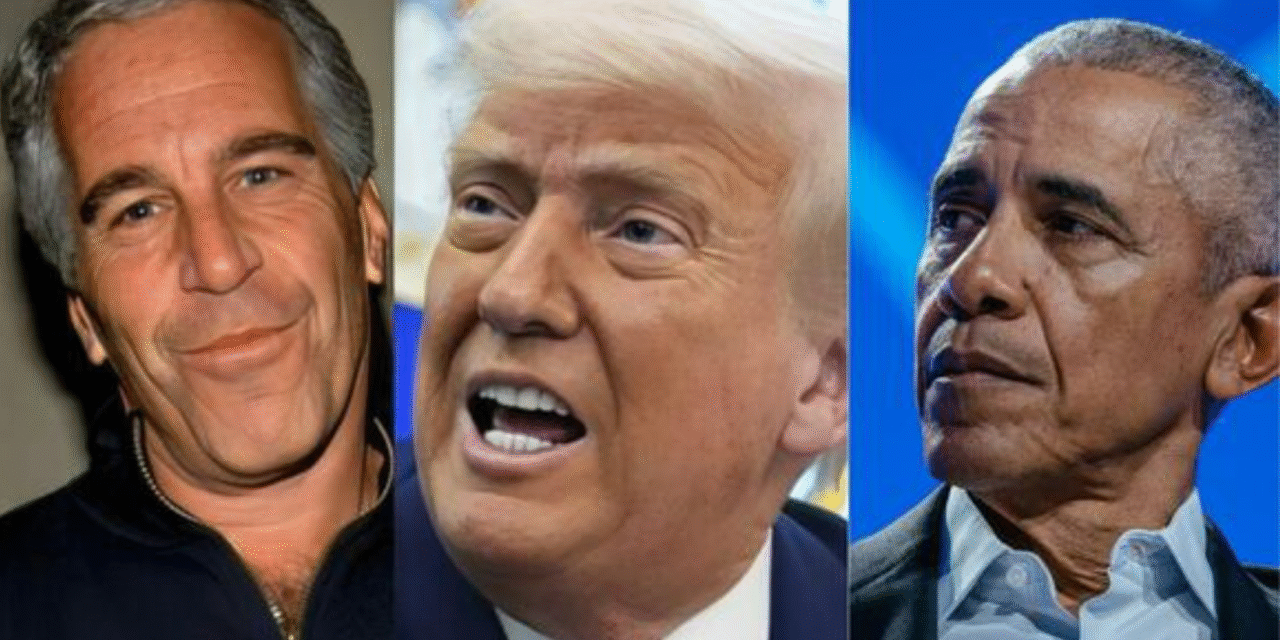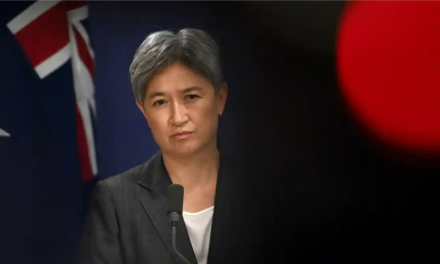Throughout modern American political history, administrations have strategically deployed distraction tactics to deflect public attention from scandals and political crises. Known colloquially as “wagging the dog,” this approach involves introducing a high-profile event—whether military action, political accusation, or media scandal—designed to dominate headlines and redirect national discourse.
These calculated diversions often exploit the fickle nature of public attention and the tribal loyalties of partisan politics. In an era where voters cling desperately to party lines—defending leaders not on merit but out of sheer political allegiance—administrations from both major parties have mastered the art of manipulating outrage, fear, and scandal to serve their survival. The sad reality is that political loyalty has evolved into blind obedience, with millions ready to justify, ignore, or even cheer on actions they would have condemned if taken by the opposing side.
Rather than holding leaders accountable, partisan voters have become foot soldiers in the great game of political theatre—pawns who consume whatever narrative is fed to them by their media of choice, parroting talking points as if they were gospel. This collective amnesia and moral flexibility have allowed presidents, regardless of affiliation, to dodge scrutiny time and again through well-timed distractions and diversions.
The effect is twofold: first, to smother negative coverage or scandal before it can gain traction; second, to inflame partisan passions, thereby rallying the faithful while drowning out dissenting voices. This manipulation of public discourse ensures that even the gravest controversies can be whitewashed or forgotten under the flood of orchestrated outrage.
We’ve witnessed presidents embroiled in personal disgrace launching sudden military strikes, administrations entangled in corruption scandals pivoting to new foreign threats, and embattled leaders orchestrating headline-grabbing accusations to silence critics and control the news cycle. The American public—bitterly divided and addicted to partisan conflict—becomes a willing participant in this grand spectacle, all while genuine accountability remains elusive.
In this exposé, we now shine a glaring light on at least six notorious cases where U.S. administrations have shamelessly used the same well-worn playbook to distract, divert, and deceive. These examples aren’t relics of a bygone era but recurring chapters in a cynical script still in use today. And nowhere is this manipulation more evident than in the unfolding 2025 Epstein-Gabbard affair—a masterstroke of political distraction that epitomizes how power protects itself by turning the public against itself.
The current coverup: Donald Trump — Epstein Files Backlash and the Gabbard Conspiracy Bombshell (2025)
Background:
In July 2025, the DOJ released a memo stating there was “no Epstein client list” and reasserted Epstein’s death as a suicide.
This sparked massive backlash from both sides of the political spectrum. Influencers across political divides accused the Trump administration and DOJ of hiding incriminating information to protect elite interests.
The media, which had been cautiously covering the Epstein files, was flooded with criticism, and the administration faced a credibility crisis, especially with its conservative base.
The Diversion:
Within a week, Tulsi Gabbard, serving as Director of National Intelligence, dropped a bombshell report accusing former President Barack Obama and his top officials of orchestrating a “treasonous conspiracy” related to the Russiagate investigations.
Gabbard referred the case for DOJ prosecution and held high-profile press conferences, ensuring maximum media coverage.
The story dominated the conservative media sphere, redirecting anger and attention toward Obama and the alleged deep state plot.
Why It Was Seen as a Diversion:
The timing was conspicuously close to the DOJ’s Epstein backlash.
The narrative conveniently aligned with Trump’s long-standing grievances about Russiagate and revived MAGA base fervour.
Analysts noted the media’s rapid pivot away from Epstein toward Gabbard’s allegations.
Some media watchdogs accused the administration of orchestrating a deliberate narrative shift to deflect attention.
Expanded Impact:
The Epstein scandal coverage nearly vanished from mainstream media within days.
Right-wing commentators shifted focus entirely onto the alleged Obama conspiracy, reigniting partisan warfare.
The Trump administration, while still facing criticism, managed to reclaim control of the media narrative.
This manoeuvre also served a dual purpose of consolidating MAGA support amid internal fractures, especially with figures like Elon Musk criticizing Trump over Epstein.
Emerging Concerns:
Critics warned that this tactic reflects a dangerous trend where legitimate concerns about government transparency (like the Epstein files) are buried under politically motivated accusations.
Some analysts compared this to previous “wag the dog” moments, suggesting it signalled a further erosion of public trust.
Legal experts noted that without clear evidence, Gabbard’s accusations risk being perceived as politically weaponized, potentially undermining faith in national security institutions.
In the case unfolding before us now, the Epstein files controversy of 2025, we are witnessing yet another textbook execution of this tactic. After years of public demand for transparency regarding Jeffrey Epstein’s client list and connections to global elites, the Department of Justice abruptly declared there were no such records and reaffirmed Epstein’s death as a suicide. The announcement sparked outrage across the political spectrum, uniting critics from both left and right who accused the government of protecting the powerful at the expense of justice and truth.
But just as this backlash began to reach a fever pitch, the Trump administration and its allies played their next move: a sensational allegation by Tulsi Gabbard, now Director of National Intelligence, claiming former President Barack Obama and his inner circle had orchestrated a treasonous conspiracy during the Russiagate investigation. The Gabbard revelations exploded across headlines, redirecting public attention toward partisan warfare and reigniting the MAGA base’s anger against the so-called deep state.
This manoeuvre was anything but subtle. The timing of Gabbard’s accusations, coming on the heels of the Epstein file backlash, suggests a deliberate effort to shift the narrative—a move perfectly aligned with the long-established playbook of political distraction. The media’s rapid pivot from Epstein to Gabbard’s bombshell is yet another example of how easily national focus can be manipulated when power is at stake.
And this is far from the first time.
If we now shine a light on at least six past cases where U.S. administrations from both major parties used the same cynical strategy, a clear and disturbing pattern emerges—a pattern where voters, blinded by partisan loyalty, rally behind their leaders and swallow the next scandal as if it were the natural order of politics. These cases reveal how both Republicans and Democrats have exploited public gullibility and media sensationalism to bury inconvenient truths, shield their elite allies, and maintain their grip on power.
Case Study 1: Clinton’s Wag the Dog — The 1998 Monica Lewinsky Scandal and Sudan Bombings

Background:
In January 1998, news broke of President Bill Clinton’s affair with White House intern Monica Lewinsky. The scandal escalated into a national obsession, leading to impeachment proceedings for perjury and obstruction of justice.
The Diversion:
On August 20, 1998, Clinton ordered missile strikes on Al-Qaeda targets in Afghanistan and a pharmaceutical factory in Sudan, claiming retaliation for U.S. embassy bombings in Kenya and Tanzania.
Bill Clinton and Monica Lewinsky on February 28 1997
The Sudan strike was later criticized, with experts arguing the factory had no terrorist links.
Why It Was Seen as a Diversion:
The timing—coinciding with Lewinsky’s grand jury testimony—raised immediate suspicions.
Media dubbed it a real-life “Wag the Dog” scenario, referencing the political satire film released months earlier.
Impact:
The strikes briefly shifted media focus but did not ultimately prevent impeachment.
This marked a watershed in public scepticism toward presidential military actions.
Case Study 2: George W. Bush — Abu Ghraib Scandal and the Ramping Up of the War on Terror (2004)
Background:
In April 2004, CBS aired shocking images of U.S. soldiers abusing detainees at Abu Ghraib prison in Iraq.
The scandal threatened to undermine U.S. legitimacy in the Iraq War and stirred global outrage.
The Diversion:
The Bush administration swiftly escalated its rhetoric on terrorism, highlighting alleged plots and emphasizing ongoing military successes.
They also accelerated plans for the battle of Fallujah and promoted anti-terror operations in Afghanistan.
Why It Was Seen as a Diversion:
The administration’s aggressive push of “good news” stories coincided with Congressional hearings on Abu Ghraib.
National security briefings flooded the media, saturating headlines.
Impact:
While the scandal had lasting damage on U.S. credibility, the administration maintained support for the war effort domestically.
Case Study 3: Barack Obama — Benghazi Attack and the Petraeus Affair (2012)
Background:
On September 11, 2012, the U.S. consulate in Benghazi, Libya, was attacked, killing Ambassador Chris Stevens and three others.
The Obama administration faced accusations of misleading the public about the attack’s cause.
The Diversion:
In November 2012, General David Petraeus resigned as CIA Director after revelations of an extramarital affair.
The affair quickly dominated headlines, pushing Benghazi-related scrutiny into the background.
Why It Was Seen as a Diversion:
The affair’s disclosure timing raised eyebrows, coming just as post-election hearings were set to examine Benghazi.
Critics argued the Obama administration weaponized the scandal to shield itself from deeper inquiry.
Impact:
Benghazi remained a partisan flashpoint, but the Petraeus scandal shifted media and public focus away from Obama’s foreign policy handling.
Case Study 4: Donald Trump — Ukraine Impeachment and the Killing of Qasem Soleimani (2020)
Background:
In December 2019, the House of Representatives impeached Donald Trump over abuse of power related to Ukraine aid.
The Senate trial was set to begin in January 2020.
The Diversion:
On January 3, 2020, Trump ordered a drone strike killing Iranian General Qasem Soleimani.
The action nearly triggered a broader conflict with Iran.
Why It Was Seen as a Diversion:
The strike’s sudden nature, alongside lack of Congressional consultation, was viewed by critics as a distraction tactic.
The impeachment trial coverage was eclipsed by war fears and analysis.
Impact:
Impeachment coverage diminished in prominence, and Trump solidified support among defence hawks.
Case Study 5: Joe Biden — Afghanistan Withdrawal and Vaccine Mandates (2021)

Background:
The rapid and chaotic withdrawal of U.S. forces from Afghanistan in August 2021 drew bipartisan criticism and public outrage.
The Diversion:
Shortly after, Biden’s administration intensified COVID-19 vaccine mandate efforts, rolling out OSHA-enforced mandates.
US withdrawal from Afghanistan August 2021
Why It Was Seen as a Diversion:
The mandates reignited political battles over public health, dominating news cycles.
The Afghanistan fallout coverage dwindled amid vaccine debates and protests.
Impact:
While Afghanistan remained a foreign policy failure, the administration deflected broader scrutiny by shifting the public conversation.
Conclusion
From Clinton to Trump, every modern administration has used distraction tactics to manage scandals. Whether through military strikes, high-profile resignations, or explosive political accusations, leaders have repeatedly leveraged headline-grabbing events to steer public focus away from damaging revelations.
The 2025 Epstein-Gabbard affair stands as a contemporary textbook case. By critically examining these tactics, the public and media must remain vigilant against manipulation designed not for transparency or justice, but for political survival.






Yes, agree with the assessments, they actually stick out like ‘Dogs Balls’